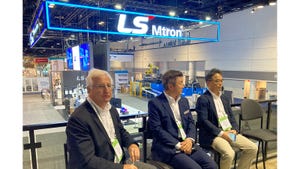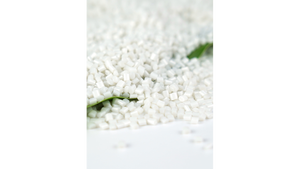TonenGeneral and Toray team up to create lithium-ion battery separator films
A new joint venture will combine the plastic film processing and polymer science capabilities of Toray with the lithium-ion battery separator film business and technology TonenGeneral Sekiyu KK.
November 5, 2009
. TonenGeneral, an affiliate of ExxonMobil Chemical, and Toray will establish a global joint venture to develop, manufacture, and sell lithium-ion battery separator film and introduce next-generation films to the market. In a release, Jim Harris, Sr. VP ExxonMobil Chemical, said his company believes the venture will “accelerate the development of separator film technology to support the rapidly evolving lithium-ion battery market faster than either company could do alone.” To be formalized in January 2010, the joint venture calls for TonenGeneral and Toray Industries to each hold a 50% interest, with company headquarters to be in Tokyo.
On Oct. 9, 2008, Tonen Specialty Separator Korea Ltd., a wholly owned subsidiary of TonenGeneral, broke ground on a new separator-film manufacturing facility in Gumi City, South Korea. The facility’s construction was the result of a feasibility study announced on Nov. 28, 2007 by Tonen Chemical, which determined capacity in addition to its existing film plant at Nasu, Japan, would be needed. The new facility, which started up in 2009, has the ability to produce more than 30 million m2 of film per year, utilizing TonenGeneral polymer and process technologies, as well as a new technology platform from ExxonMobil Chemical.
The new film technology, which was introduced in late 2007 by ExxonMobil Chemical and Tonen Chemical, reportedly enhances the power, safety, and reliability of lithium-ion batteries. Under the new platform, battery separator films are produced using a proprietary wet, biorientation manufacturing process that results in fine, highly uniform pores. The films themselves are co-extruded using specially tailored, high heat-resistant polymers. The companies say the result is a unique combination of properties, including enhanced permeability, higher meltdown temperature, and melt integrity, while maintaining quick shutdown performance and mechanical strength. The higher meltdown temperature significantly increases the film’s thermal safety margin.
Toray’s development work in battery separators builds off its Mictron line of a para-aramide films, which feature high rigidity, heat resistance, and barrier performance. The company reports that they are already used in high-density computer memory tapes, and other industrial electronics applications, including circuit boards and diaphragms. Toray is developing next-generation products, including a colorless, transparent aramid film for organic transistors, and a microporous aramid film for use as battery separators.
The investments, and new technology, are being driven by a rapidly expanding market for lithium-ion batteries. Globally, 2.71 billion lithium-ion batteries were sold in 2008, with a sales value of $8.03 billion, according to a Market Avenue report. Mobile phone made up most of that demand, accounting for more than 60% of the total consumption. Going forward, sales are expected to reach 3 billion units in 2010, driven in part by the automotive market. Carmakers Toyota, Kabushiki, Mitsubishi, Nissan, Audi, and GM already use, or will start to use, lithium-ion batteries in their passenger vehicles.
On Oct. 27, Toshiba announced it would invest $273 million in a new lithium-ion battery plant in Kashiwazaki, Japan. With an initial capacity of 500,000 cells per month, according to a Reuters report, the new facility will more than quadruple Toshiba's capacity for the batteries when it goes online in the spring of 2011.
—[email protected]
About the Author(s)
You May Also Like


